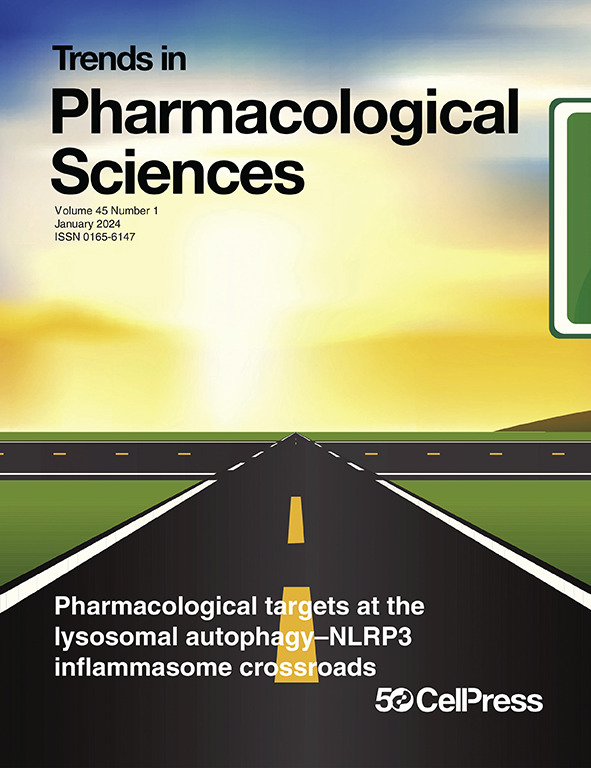让你的肠道 Treg 细胞免受痛苦!
IF 13.9
1区 医学
Q1 PHARMACOLOGY & PHARMACY
Trends in pharmacological sciences
Pub Date : 2024-10-01
Epub Date: 2024-09-05
DOI:10.1016/j.tips.2024.08.008
引用次数: 0
摘要
维持肠道稳态需要神经系统、免疫系统和微生物组之间复杂的相互作用,但它们之间相互作用的性质仍不清楚。Chiu和Benoist的研究小组采用了基于化学遗传学的、专门由设计药物激活的设计受体(DREADD)来靶向特定的神经细胞类型,并评估它们对肠道免疫系统和微生物群的影响。本文章由计算机程序翻译,如有差异,请以英文原文为准。
Spare the pain for your gut Treg cells!
Maintaining gut homeostasis requires a complex interplay between the nervous and immune systems and the microbiome, but the nature of their interactions remains unclear. Chiu and Benoist's teams employed designer receptors exclusively activated by designer drugs (DREADD)-based chemogenetics to target specific neuronal cell types and evaluate their effects on both the gut immune system and the microbiota.
求助全文
通过发布文献求助,成功后即可免费获取论文全文。
去求助
来源期刊
CiteScore
23.90
自引率
0.70%
发文量
132
审稿时长
6-12 weeks
期刊介绍:
Trends in Pharmacological Sciences (TIPS) is a monthly peer-reviewed reviews journal that focuses on a wide range of topics in pharmacology, pharmacy, pharmaceutics, and toxicology. Launched in 1979, TIPS publishes concise articles discussing the latest advancements in pharmacology and therapeutics research.
The journal encourages submissions that align with its core themes while also being open to articles on the biopharma regulatory landscape, science policy and regulation, and bioethics.
Each issue of TIPS provides a platform for experts to share their insights and perspectives on the most exciting developments in the field. Through rigorous peer review, the journal ensures the quality and reliability of published articles.
Authors are invited to contribute articles that contribute to the understanding of pharmacology and its applications in various domains. Whether it's exploring innovative drug therapies or discussing the ethical considerations of pharmaceutical research, TIPS provides a valuable resource for researchers, practitioners, and policymakers in the pharmacological sciences.

 求助内容:
求助内容: 应助结果提醒方式:
应助结果提醒方式:


